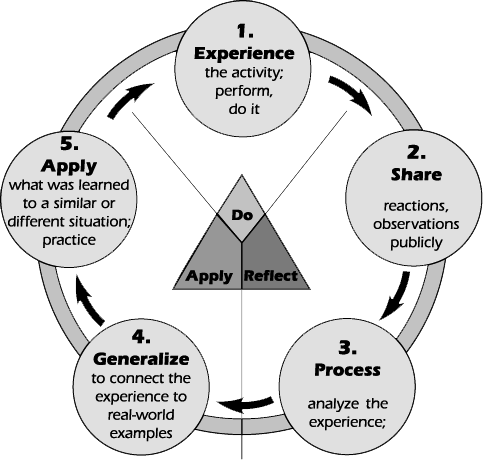The American philosopher and educational reformer John Dewey once said, “Experiential learning takes place when a person is involved in an activity, looks back and evaluates it, determines what was useful or important to remember and uses this information to perform another activity.” Experiential learning is learning through reflection on doing, which is often contrasted with rote or didactic learning. Experiential learning focuses on the learning process for the individual. Because of the direct involvement, the learner makes discoveries and experiments with knowledge firsthand, instead of hearing or reading about others’ experiences.
Experiential learning relates solely to the meaning making process of the individual’s direct experience. However, though the gaining of knowledge is an inherent process that occurs naturally, for a genuine learning experience to occur, there must exist certain elements.
- The learner must be willing to be actively involved in the experience;
- The learner must be able to reflect on the experience;
- The learner must possess and use analytical skills to conceptualize the experience; and
- The learner must possess decision-making and problem-solving skills in order to use the new ideas gained from the experience.

Tennessee 4-H Youth Development uses the five steps of the experiential learning model as an essential component of all educational experiences. These specific and sequential steps of the model work well when the objective is to combine the development of project subject matter with personal life skills in a single activity or series of related activities.
The experiential learning process engages the learners in the activity, encourages them to think more, work harder, and ultimately learn more thoroughly than with traditional teaching methods, such as telling or showing. All 4-H programs and events are designed around the “learn by doing” or experiential learning model in an effort to create better understanding and critical thinking skills.
